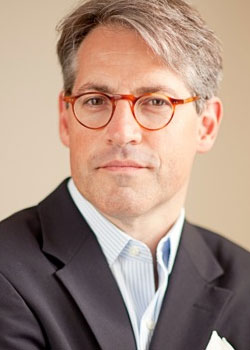The following post originally appeared as a BreakPoint radio commentary.
 For a long time, Prison Fellowship has believed that the United States incarcerates far too many people at far too high a cost. What’s more, that cost does not take into account an important set of victims: the innocent children of offenders.
For a long time, Prison Fellowship has believed that the United States incarcerates far too many people at far too high a cost. What’s more, that cost does not take into account an important set of victims: the innocent children of offenders.
Well, a recent study by the National Academy of Sciences has come to much the same conclusion.
According to the study, since the 1970s the incarceration rate in the U. S. has more than quadrupled after remaining basically flat the previous fifty years. As the report states, “The growth in incarceration rates in the United States over the past 40 years is historically unprecedented and internationally unique.”
Not surprisingly, this “unprecedented” and “unique” growth came at a great cost. I don’t mean the costs as measured in dollars and cents, although that was considerable. I mean the costs measured in the lives of offenders and, especially, their families.
Between 1980 and 2000, the number of minors with an incarcerated father rose from 359,000 to 2.1 million, a six-fold increase that represented 3 percent of all children in the United States. Looking at the problem from a slightly different angle, a 2007 study by the Bureau of Justice Statistics estimated that 53 percent of the men in prison had children who were minors.
It shouldn’t surprise regular BreakPoint listeners to learn that the study found having an incarcerated father has a profound and adverse impact on children. The most visible one is economic: families with an incarcerated father are poorer than those without an imprisoned dad. What’s more, this effect persists after the prisoner gets out, since ex-offenders often have trouble finding work after their release.
But the effects go beyond the financial: “The strongest and most consistent findings regarding effects of fathers’ incarceration on child well-being are for behavior problems and delinquency.”
Our over-reliance on incarceration has set in motion a vicious and potentially self-perpetuating cycle as the children of offenders, due in large part to the stresses of having an incarcerated father, are at risk of becoming offenders themselves.
How do we break this cycle? To paraphrase the Book of Esther, for a such a time as this, God sent Chuck Colson to prison. God saw where our over reliance on prisons would lead, and He raised up an unlikely answer to the problems that it would create.
The NAS study has some policy recommendations, especially when it comes to reducing America’s reliance on incarceration, that Prison Fellowship Ministries has supported and worked to enact in states across the country.
But breaking the cycle requires more than policy—it requires restoration. It calls for a concerted effort to reunite offenders with their children and stand by them as they work to repair what has been broken.
Chuck Colson understood this, which is why he and Prison Fellowship have helped to pioneer and advocate the concept of “restorative justice.” The goal has been more than the absence of crime, as desirable as that is. It has been shalom, the peace of right relationships, which means helping in God’s work of turning “the hearts of fathers to their children and the hearts of children to their fathers.”
Have you or your church been called to this work of restoration for such a time as this? Please learn more about Prison Fellowship’s work to restore offenders and their families by visiting prisonfellowship.org